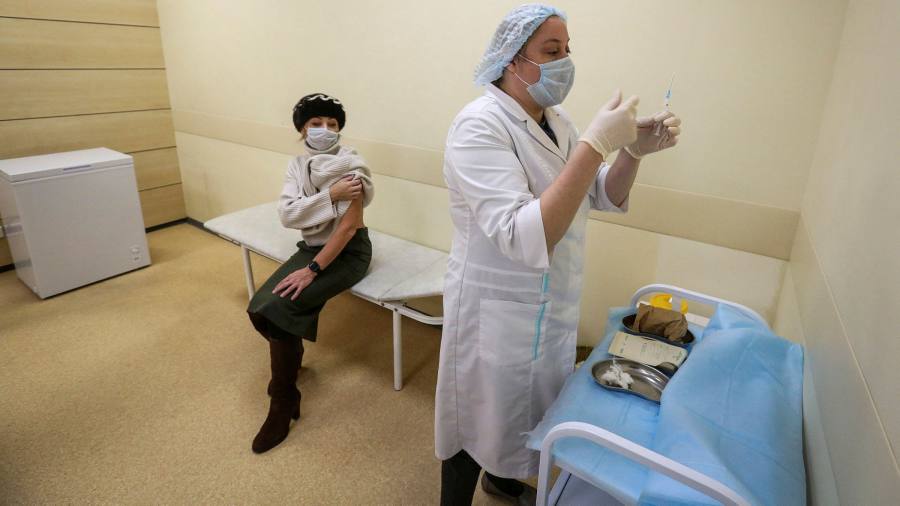[ad_1]
At some point in the coming months, a diplomatic shipment unlike any other will arrive at the British embassy in Moscow.
Instead of official documents, classified messages or, say, Branston Pickle, it will contain scores of Covid-19 vaccine doses acquired by the UK government, ready to be injected into embassy staff and their families.
That’s not because there is a shortage of vaccines in Russia. Sputnik V, a state-developed jab that last summer was the first approved anywhere in the world, is being administered to all who want it. Sluggish demand means Moscow’s clinics are well-stocked; waiting times are measured in minutes, not weeks.
But both the British and US embassies in Moscow are instead relying on airlifts of domestically approved vaccines — which must be administered on embassy territory as their use is not legal in Russia — officials briefed on the plans told the Financial Times.
To Sputnik or not to Sputnik has become a thorny issue for diplomats in Moscow, especially since the jab — initially mocked in the west as a dangerous, rapidly approved public relations stunt — is now seen by international scientists as one of the world’s most effective.
Russia’s foreign affairs ministry has offered shots to all accredited diplomats in the country — a tempting proposition for many civil servants who would have to wait months or even years if they were back home.
Sputnik V has been a soft-power gold mine for the Kremlin. As relations with the EU and US have soured over the past six months due to the persecution of opposition activist Alexei Navalny, it has aggressively marketed the vaccine to non-western countries. It has pitched Sputnik as the alternative to jabs developed by profit-hungry global pharmaceutical companies prioritising richer nations.
That some of those richer nations, such as Hungary and Slovakia, are themselves now turning to Russia for emergency supplies of Sputnik to offset sluggish supplies of western vaccines is even better news for the Kremlin. Vaccinating their diplomats makes for a nice headline, too — as the Italian ambassador to Moscow found out to his discomfort last month.
For embassies representing one of the 45 foreign countries whose medical authorities have approved Sputnik V, such as Mexico and Montenegro, encouraging staff members to get the two-dose Russian jab has been a no-brainer. It has also been popular among foreign correspondents, myself included, keen to restart reporting trips.
But other embassies, such as those representing the UK, the US and most EU members, are caught between wanting to protect staff in a country with reportedly the world’s third-highest coronavirus death tally.
Diplomats working in the Moscow embassies of Bulgaria, Switzerland, Greece, Slovakia and Spain have been vaccinated with Sputnik V, spokespeople told the FT. Many others, including the EU’s permanent representation, said their diplomats could choose where, and with what jab, to be vaccinated.
The British and US decisions to go in-house is not without precedent, according to officials from both countries. British diplomats are given a UK flu jab each winter, while the US embassy provides US-approved vaccinations for young children living with their diplomat parents.
“[US] Ambassador Sullivan thanks [Russia’s foreign ministry] for its offer of a vaccine, however would not want to take a Sputnik V dose meant for a Russian citizen,†embassy spokeswoman Rebecca Ross wrote on Twitter in December.
A British embassy official said the Foreign Office and defence ministry “are working together to ensure that all staff and dependants overseas, for whom Her Majesty’s Government has a duty of care, are given access to Covid-19 vaccinations in line with the UK national programme’s priority groupsâ€.
Over breakfast with a Sputnik-vaccinated diplomat last week, we both remarked how fortunate we felt to have already been vaccinated, while friends back home may still have a long wait ahead. We have our antibodies — does it matter that Russia can claim the propaganda points?
[ad_2]
Source link






